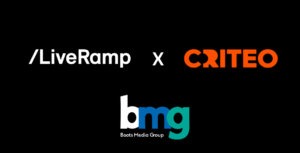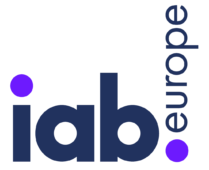Exchange-Buying Specialist ClickDistrict Expands Into The Netherlands And Germany
by Ciaran O'Kane on 8th Mar 2010 in News
The Dutch and German exchange marketplaces are starting to see signs of serious growth. With new exchanges and platforms springing up all the time, 2010 looks likely to be the break-out year for automated trading platforms. One of the leading companies in both markets is Amsterdam-based ClickDistrict. Marco Kloots, ClickDistrict CEO, spoke to ExchangeWire recently and discussed the company's business model, the opportunites in both the Dutch and German markets, and ClickDistrict's plans for the year ahead.
Can you give an overview of the service ClickDistrict offers advertisers and agencies?
MK: We are a meta network, and we work with top tier publishers, ad network optimizers, and the Google ad exchange. On the advertiser side of the equation we offer two solutions for both direct advertisers and agencies: audience-based targeting and performance-based campaigns on a CPC basis.
What attracted ClickDistrict to the ad exchange model?
MK: We see three types of exchanges in our markets: blind exchanges like Right Media; transparent exchanges like the Google Exchange; and ad network optimizers, such as Rubicon, Admeld and Improve Digital. Because we work with quality advertisers we don’t focus on buying on blind exchanges due to lack of transparency. We focus on transparent exchanges and ad network optimizers. Working with these inventory sources gives us the flexibility to get the right inventory for our advertisers.
What exchange or automated platforms are you currently buying from?
MK: We’re just starting to work with the Google ad exchange in the Dutch and German markets.
What are the leading trading platforms and exchanges in these markets?
MK: In the Dutch market we have buying relationships with Admeld, Improve Digital and Rubicon. In the German market, which we’ve recently entered, we have been working with Rubicon and Improve Digital for a number of months
What is your view on Real-Time Bidding? Is it reality here in Europe? Is ClickDistrict currently using RTB to trade ad inventory on the ad exchanges?
MK: We believe in RTB as it makes trading more efficient, but at this point volumes are very small. There are also technical issues that the market needs to overcome. We are in the process of setting this up with a number of partners.
The majority of campaigns being run across exchange platforms are DR-focused. Do you think we will see more brand-led display buys in the coming twelve months?
MK: No. Currently, the biggest exchanges in Europe lack transparency and quality inventory which makes branding a difficult direction to pursue for advertisers.
You currently work in the Dutch and German markets. How do you see the exchange marketplaces in these countries developing over the coming year?
MK: Exchanges are a technology product. The marketplace still requires a lot of hand holding. Managing your inventory through an exchange requires resources and specific knowledge. That will be a barrier in the growth of exchanges. Ad network optimizers focus on quality, service and optimization. This is a full suite which in this phase is more interesting for top publishers. Lower quality publishers will see more value in exchanges as it easier to fill your inventory through an exchange. This is where we’re seeing the growth in the Germany and the Dutch markets.
Do you think there is a big opportunity for exchange specialists like Click District to do a lot more pan-European media buys?
MK: Yes. There is definitely a lot of opportunity as it is easier to access inventory on a pan-Euro level as the presence of exchanges and ad network optimizers grow across the European market. However our focus remains on the markets where we hold local sales teams.
Using cookie data to identify specific audiences has emerged as a major USP for the exchange model. Do you think this technique has worked well in the markets you are currently working in?
MK: The cookie model has evolved as the market norm for identifying specific audiences. Any model that works within the boundaries of local regulations and industry standards is fine with us.
How has exchange trading developed here in Europe over the last twelve months? Are more agencies and advertisers turning to exchange specialists, like Click District, to deliver better campaign results?
MK: There are still a lot of unknowns both on the advertiser, agency and publisher side. Once these are resolved then we believe exchanges will continue to grow in the European market.
Do you think the Doubleclick Ad Exchange and the arrival of DSPs, like MediaMath and Invite Media, will have a big effect on how Dutch and German publishers, ad networks, agencies and advertisers view the exchange model?
MK: Yes. The entrance of these players in the market will concentrate minds on how best to work in this space. For publishers it will be important for them to decide what inventory they make available; for networks like us it will be crucial to add value to the whole chain; and for agencies they will have to figure out their buying process in this complex market.
What are the plans for ClickDistrict going forward this year?
MK: We intend to focus on delivering Audience based targeting; develop and release custom technology to enrich our product suite, such as our retargeting tools. Clickdistrict will also look to grow its reach in Germany, establishing itself as a key player within this market – as well as maintaing our strong position here in the Netherlands
Ad NetworkDisplayExchangeProgrammaticTrading








Follow ExchangeWire